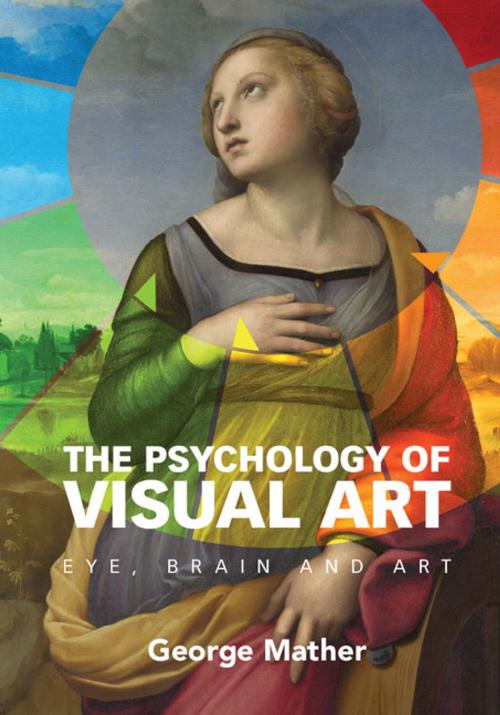The Psychology of Visual Art
Eye, Brain and Art
Nonfiction, Health & Well Being, Psychology, Applied Psychology, Art & Architecture, General Art| Author: | George Mather | ISBN: | 9781107460539 |
| Publisher: | Cambridge University Press | Publication: | October 24, 2013 |
| Imprint: | Cambridge University Press | Language: | English |
| Author: | George Mather |
| ISBN: | 9781107460539 |
| Publisher: | Cambridge University Press |
| Publication: | October 24, 2013 |
| Imprint: | Cambridge University Press |
| Language: | English |
What can art tell us about how the brain works? And what can the brain tell us about how we perceive and create art? Humans have created visual art throughout history and its significance has been an endless source of fascination and debate. Visual art is a product of the human brain, but is art so complex and sophisticated that brain function and evolution are not relevant to our understanding? This book explores the links between visual art and the brain by examining a broad range of issues including: the impact of eye and brain disorders on artistic output; the relevance of Darwinian principles to aesthetics; and the constraints imposed by brain processes on the perception of space, motion and colour in art. Arguments and theories are presented in an accessible manner and general principles are illustrated with specific art examples, helping students to apply their knowledge to new artworks.
What can art tell us about how the brain works? And what can the brain tell us about how we perceive and create art? Humans have created visual art throughout history and its significance has been an endless source of fascination and debate. Visual art is a product of the human brain, but is art so complex and sophisticated that brain function and evolution are not relevant to our understanding? This book explores the links between visual art and the brain by examining a broad range of issues including: the impact of eye and brain disorders on artistic output; the relevance of Darwinian principles to aesthetics; and the constraints imposed by brain processes on the perception of space, motion and colour in art. Arguments and theories are presented in an accessible manner and general principles are illustrated with specific art examples, helping students to apply their knowledge to new artworks.















